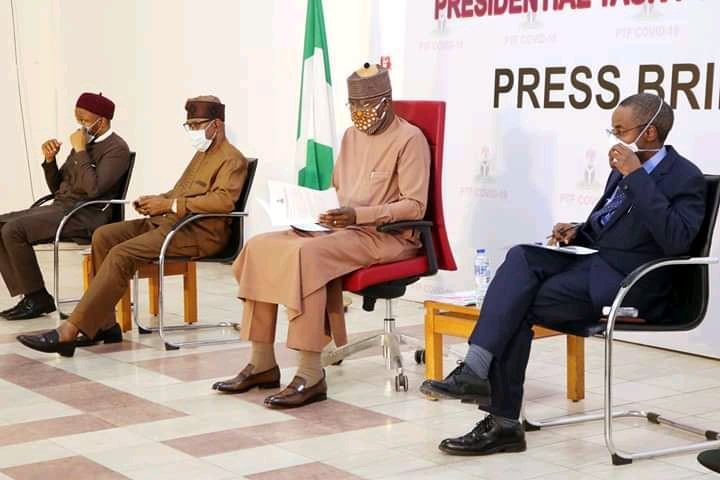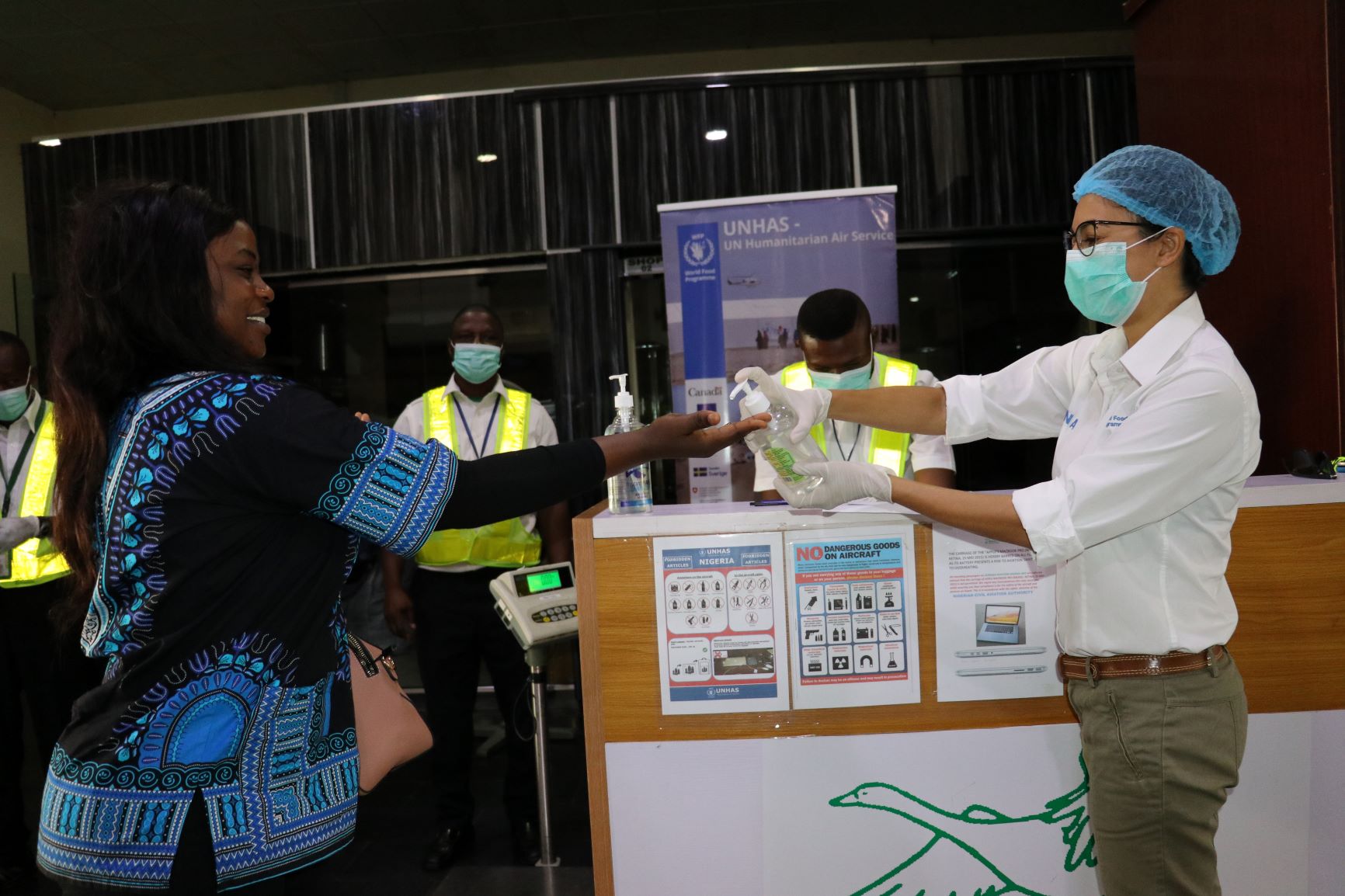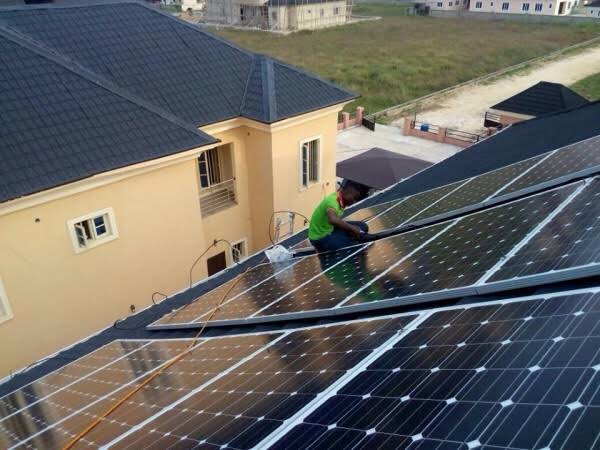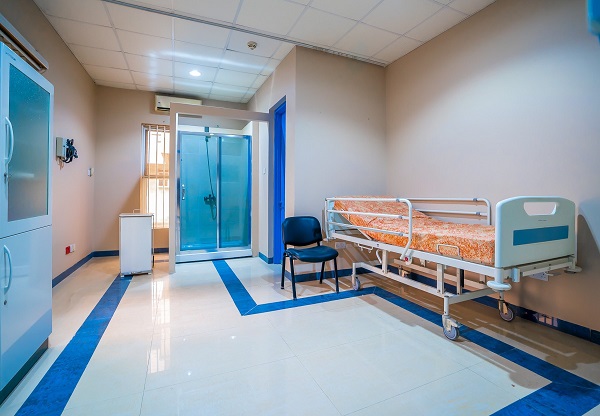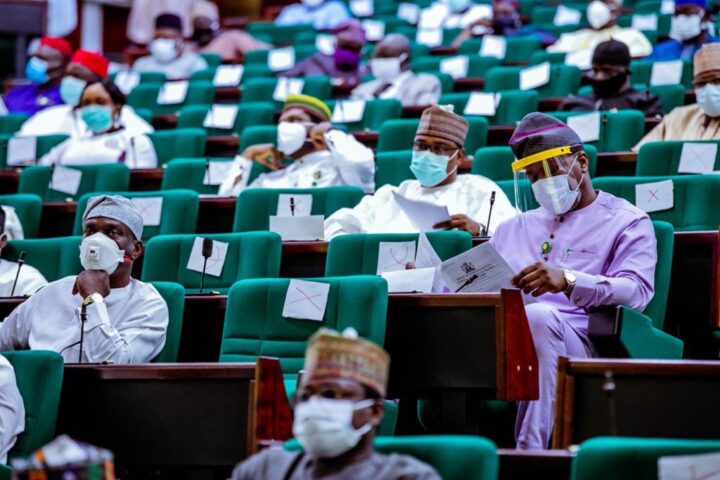Not once, not twice; there have been several events demonstrating the shortcomings of the Nigerian project. However, none seemed to have driven home this truism than the raging coronavirus pandemic. From the country’s first index case on February 27, we have confirmed over 2,000 persons infected with the novel disease, as of the time of writing this piece.
It is worthy of mention that even with situation of things in the country, there are many who still believe COVID-19 is a narrative introduced by the elites to loot public funds. You may have come across some of them already or will likely do in the coming days if you haven’t. There are also those – including some educated — who still believe that the virus is a ‘rich man’s disease’.
Not even the death of Abba Kyari, late chief of staff to President Muhammadu Buhari, one of the so-called ‘rich men’, is strong enough to convince proponents of this school of thought. It is sad. Yet, we must exercise caution before castigating such people with unprintable words. If not anything, their doubts — despite the conspicuous impact of the pandemic across the globe — is symptomatic of our wobbling system, one that has been stripped of every modicum of trust.
As a Nigerian, I deeply understand views and can relate with them pretty well. We have, for too long, been ‘victims’ of unfulfilled promises as electorates by those elected into office to champion good governance and better our lots. We have seen several politicians sauntered through villages, towns and cities with promises of creating a paradise out of nothing just to get votes only to dash hopes when they eventually get into office.
Advertisement
With the situation of things presently, however, there seemed to be an increased awareness that the virus is finally here with us and it’s only a matter of time for those who still doubt its existence – either for religious reasons or out of sheer mistrust for their leaders – to come to terms with the reality. The increased awareness has also translated into more realization that the Nigerian state has been largely unfunctional.
In the first place, the coronavirus pandemic has further proven the ineptitude of Nigerian leaders. Many have attributed the country’s problems to leadership – a position I have always embraced with reservations. Chinua Achebe, the late Nigerian literary icon, for instance in his book, ‘The Trouble with Nigeria’, unequivocally cited leadership among the country’s biggest problem. Of a truth, The COVID-19 pandemic has further reflected just how much Nigeria has been lacking good leadership.
The President Muhammadu Buhari-led administration has largely failed in its handling of the COVID-19. In its usual manner, his government seemed to be sleeping when the killer was ravaging other continents, with Africa and Nigeria earlier in the spectator category. Had we locked our borders on time and banned international flights into the country, we would have probably been having an easy ride containing the spread of the pandemic at the moment. But the Buhari government failed to act, when it mattered most.
Advertisement
Even now that the virus is finally with us, we have not seen much of his administration. His actions – overtly and covertly – since the dawn of the pandemic has largely been motivated by criticisms than not. It took intense criticisms from Nigerians on social media and other quarters to get the President to give his first nationwide broadcast over the virus on March 29.
At a time when Nigerians need hope — in words and actions — from their president on how his government has been tackling the outbreak of the deadly virus, Buhari has lived below expectations. The leadership gap is also exemplified in the lack of a uniform national strategy against the fight against the novel virus in Nigeria. We cannot expect to make headway in our battle with the disease when there’s clear-cut lack of a systematic, defined and strategic leadership in the country.
Beyond leadership ineptitude, the COVID-19 pandemic has also unmasked the depth of helplessness of Nigeria’s critical sectors. The novel disease has shown just how much our institutions are struggling. In the health sector — the worst-hit for instance — the disease has exposed how long years of neglect and low budgetary allocations have stifled its growth, no thanks to our leaders’ penchant for medical tourism at the expense of masses.
The educational system has also been exposed. The fact that Nigeria cannot successfully experiment an e-based learning system during this period should worry Nigerians, especially given the advancement of technology across the globe.
Advertisement
More worrisome is the lack of a national data base management that could facilitate easy profiling and contact tracing of COVID-19 patients as we have witnessed in some cases. The controversies that have trailed federal government’s distribution of palliatives only epitomises our backwardness as nation.
The pandemic has also revealed the vulnerability of our economic model which cannot stand the test of time. For long, we’ve defied warnings and failed to read the handwriting on the wall with our insistence to run a mono-economy built around only crude oil. At a time where emphasis are shifting away from crude oil, we have failed to diversify our economy. The recent crash in crude oil price is only sounding a warning to us, only if we are willing to learn again.
Whether political or not, there’s an iota of truism in the recent comment by Atiku Abubakar, former vice-president, that the crash in price of crude oil was a “blessing in disguise.” The COVID-19 pandemic has clearly shown our unreadiness for build a sophisticated and technological driven system most nations are working towards. If we hope to make progress as a nation, the post-COVID1-9 discussion should be aimed at charting a new course forward for the country. We can’t afford to be doing the same thing over and over again while expecting a different result.
Before this, however, there’s need tackle the issue at hand. The recent figures by the Nigerian Centre for Disease Control (NCDC) are worrisome and if nothing drastic is done about it, what would happen is best imagined. The fear of such figures even increasing further with government’s decision to relax ongoing lockdown in the country has become a major concern for Nigerians. The examples of Italy, US, Spain and other countries worst-hit by the deadly virus should daily remind us of the impending doom awaiting us if we fail to do the needful as a nation.
Advertisement
There is need to increase the country’s testing capacity. The rate of community transmission of the virus is terrifying as we have seen in some states recently. There’s also the need for uniformity in the fight against the pandemic. We can’t be having lockdown in some states while activities are ongoing in others. This is where the Buhari-led administration needs step up and prove his leadership mettle.
As the most-populated country in the continent, Nigeria should be wary of warning by the World Health Organisation (WHO) that Africa could become the epicentre of the pandemic. It was estimated that the pandemic will kill at least 300,000 people in Africa and push nearly 30 million into poverty.
Advertisement
More so, there is an urgent need for us to strike a balance between our religious beliefs and reality. It’s saddening how several religious leaders have been at the forefront of propagating falsehood about the virus in the country. Our religious inclination as a nation could be a plus if religious leaders would join forces with government in tackling spread of the pandemic by stifling spread of misinformation.
Eradicating COVID-19 in Nigeria and Africa would be a long ride but it is not a mission impossible. For Nigeria particularly, the pandemic has shown just how far away the present-day Nigeria is from the country that was desired during independence. Our realization of this reality and readiness to birth a new Nigeria will determine how far we will go as a nation.
Advertisement
Ojo is a journalist at TheCable
Advertisement
Views expressed by contributors are strictly personal and not of TheCable.
Add a comment
